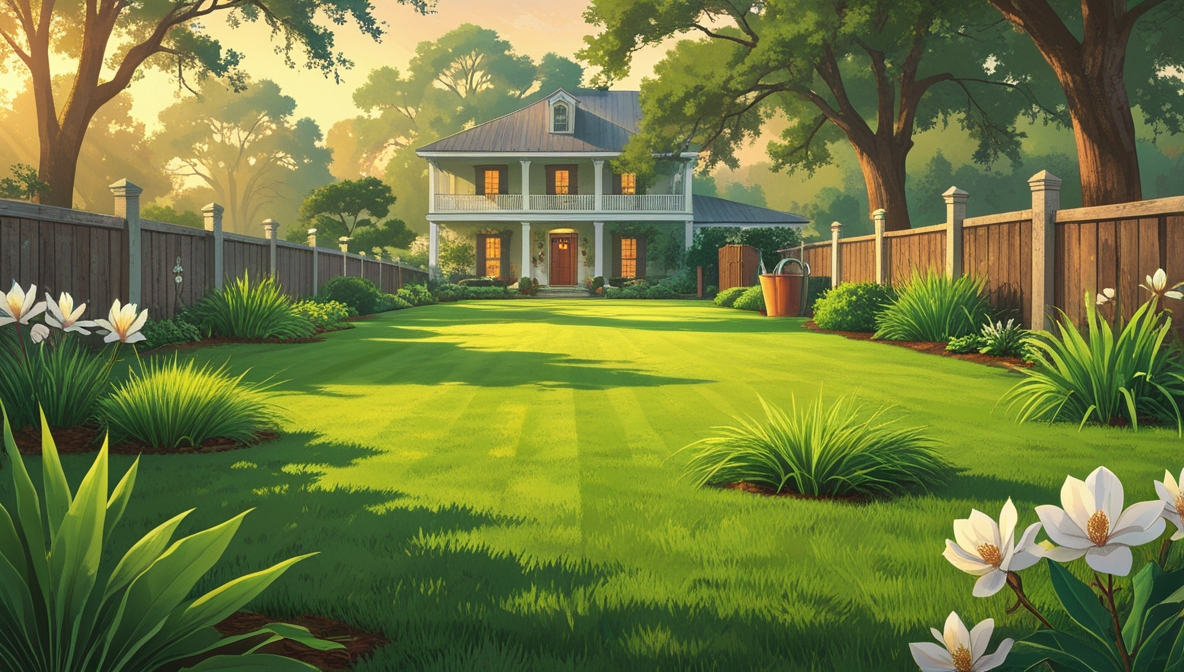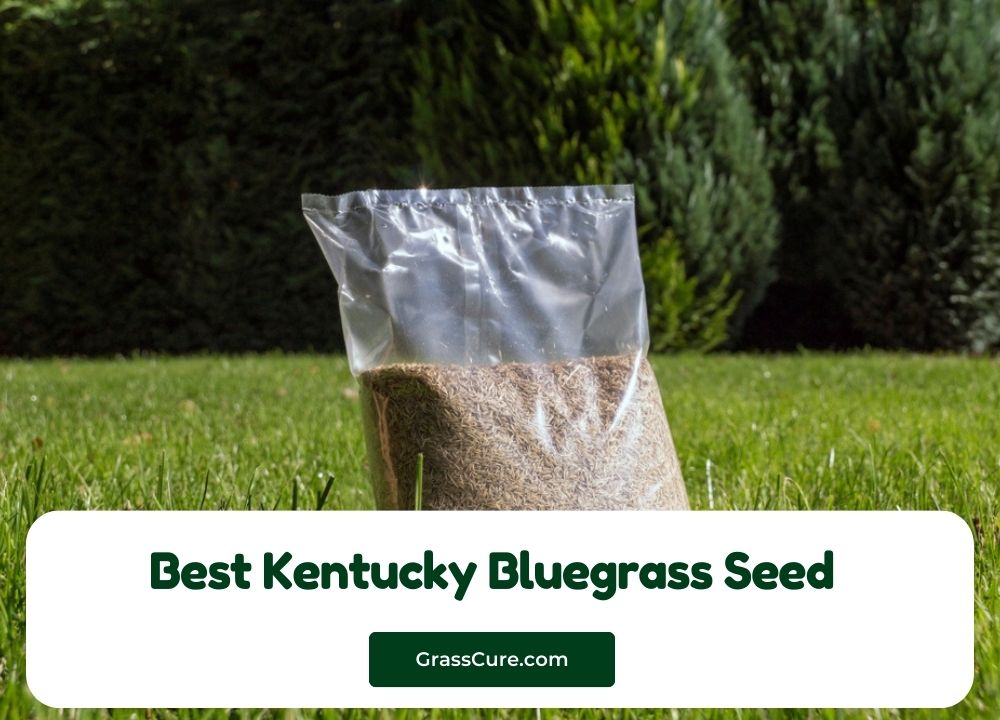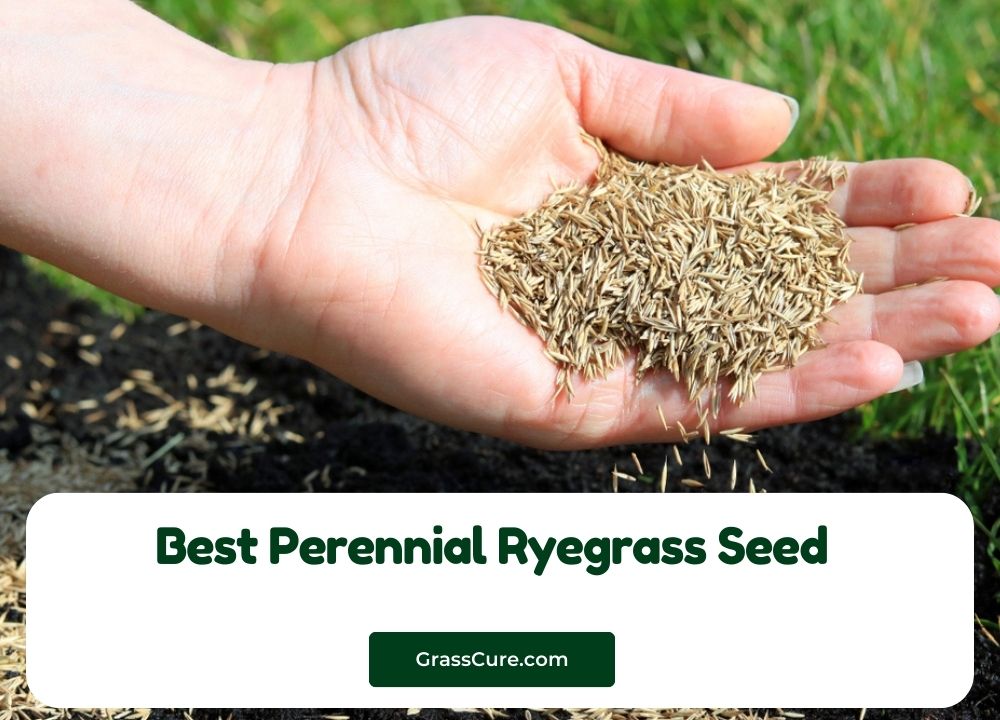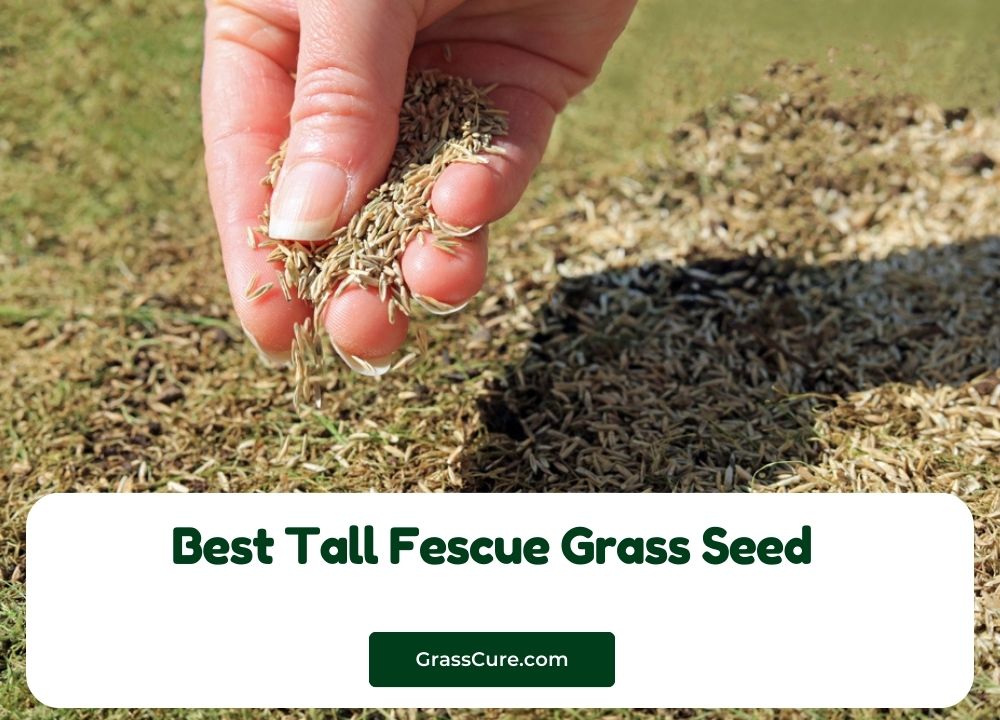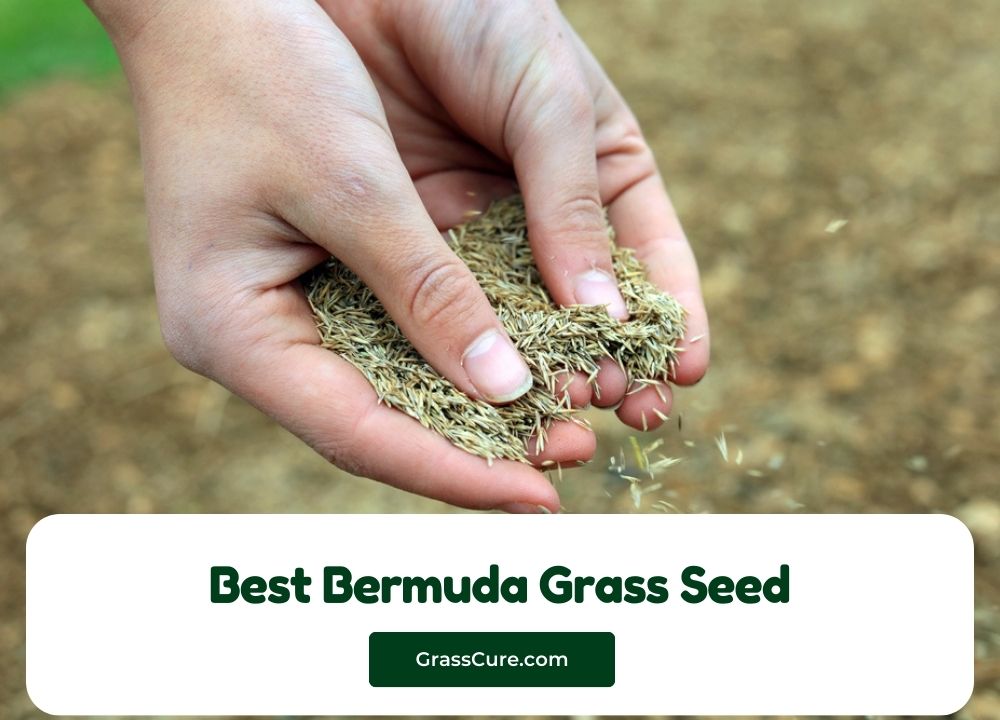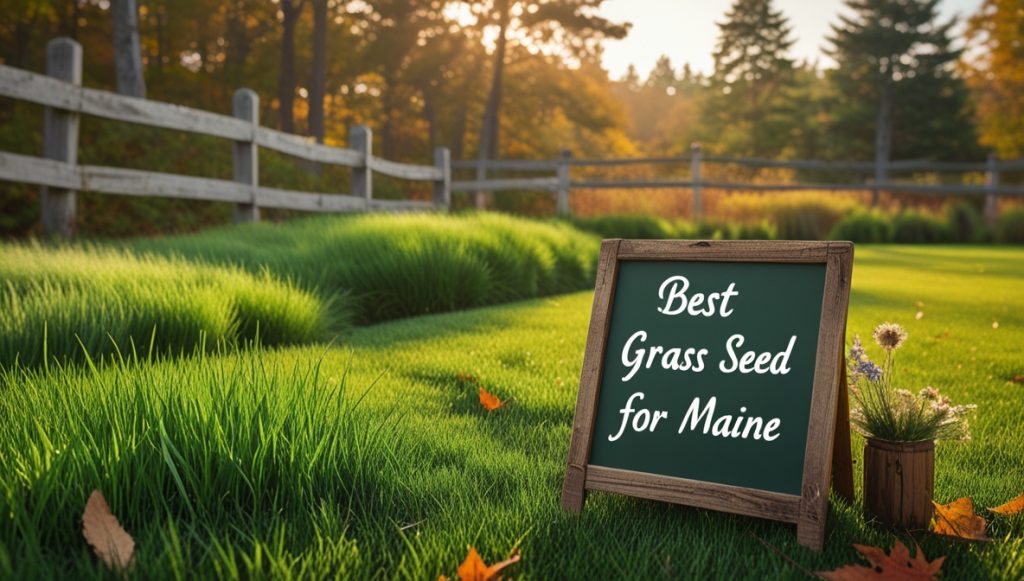Choosing the perfect grass seed can transform your Louisiana landscape. With its diverse climate and soil conditions, selecting the right variety is crucial for a thriving, beautiful lawn. This guide will help you navigate the options and find the best grass seed for Louisiana, ensuring a lush green space you can enjoy year-round.
Contents
- Choosing the Right Grass for Louisiana
- Understanding Louisiana’s Diverse Climates
- Cool-Season vs. Warm-Season Grasses
- Top Performing Warm-Season Options
- Zoysia: A Popular Louisiana Choice
- St. Augustine: Lush and Low-Maintenance
- Centipede: Shade-Tolerant and Durable
- Bermuda: Sun-Loving and Drought-Resistant
- Seed Selection and Preparation Tips
- Sowing and Maintaining Your New Lawn
Choosing the Right Grass for Louisiana
Selecting the right grass seed for your Louisiana lawn hinges on several factors. Consider your soil type (clay, sandy, loamy), sun exposure (full sun, partial shade), and the amount of foot traffic your lawn will endure. Furthermore, your personal preferences regarding maintenance levels play a significant role. Do you prefer a low-maintenance lawn or are you willing to invest more time in upkeep? Answering these questions will significantly narrow down your options.
Ultimately, the best grass seed will depend on your specific needs and location within Louisiana. The state’s diverse microclimates mean what thrives in one area might struggle in another. Therefore, consulting with local lawn care professionals or your local garden center can provide invaluable, personalized advice.
Understanding Louisiana’s Diverse Climates
Louisiana boasts a range of climates, from the humid subtropical conditions in the south to the more temperate areas in the north. This variation significantly impacts the types of grasses that will flourish. Coastal regions experience higher humidity and salt spray, demanding grasses with exceptional salt tolerance. Inland areas, conversely, might require drought-resistant varieties.
Moreover, the length and intensity of the growing season vary across the state. Northern Louisiana experiences cooler temperatures and shorter growing seasons compared to the south. This difference directly influences the suitability of cool-season versus warm-season grasses. Understanding these variations is paramount to selecting a grass that will thrive in your specific Louisiana location.
Cool-Season vs. Warm-Season Grasses
Louisiana’s climate makes warm-season grasses the more suitable choice for most areas. These grasses thrive in the state’s hot, humid summers and go dormant during the cooler months. Cool-season grasses, on the other hand, prefer cooler temperatures and tend to struggle in Louisiana’s intense summer heat. They might offer a temporary green solution in the cooler months but will often brown out completely during the summer.
Consequently, focusing on warm-season grasses like Zoysia, St. Augustine, Centipede, and Bermuda will generally yield the best results. These varieties are adapted to Louisiana’s climate and will provide a healthy, lush lawn for the majority of the year. While cool-season grasses might be considered for very specific, high-altitude or uniquely shaded areas, they are not the primary recommendation for most Louisiana lawns.
Top Performing Warm-Season Options
Several warm-season grasses consistently perform well in Louisiana’s diverse environments. These grasses offer a balance of aesthetic appeal, durability, and manageable maintenance needs. The specific choice will depend on your individual site conditions and preferences. For instance, if you have a shady area, Centipede grass might be ideal, whereas full sun locations are better suited to Bermuda grass.
Therefore, careful consideration of your yard’s unique features is crucial. Factors like sun exposure, soil type, and your desired level of maintenance will help you determine which of these top-performing warm-season grasses is the best fit for your Louisiana lawn.
Zoysia: A Popular Louisiana Choice
Zoysia grass is a popular choice for Louisiana lawns due to its fine texture, excellent wear tolerance, and relatively low maintenance requirements. It boasts a deep green color and forms a dense turf, making it ideal for high-traffic areas. Zoysia is also relatively drought-tolerant once established, reducing the need for frequent watering.
In addition to its aesthetic appeal and resilience, Zoysia offers good disease resistance, minimizing the need for chemical treatments. While it prefers full sun, Zoysia can tolerate some shade. However, in heavily shaded areas, its growth might be compromised. Its slower growth rate also means less frequent mowing is needed compared to other warm-season grasses.
St. Augustine: Lush and Low-Maintenance
St. Augustine grass is known for its lush, carpet-like appearance and relatively low maintenance needs. It’s a popular choice for homeowners seeking a beautiful lawn without excessive upkeep. This grass tolerates some shade and is highly adaptable to various soil types, making it suitable for a wide range of Louisiana landscapes.
However, St. Augustine is susceptible to certain diseases and pests, requiring occasional monitoring and treatment. It also requires regular fertilization to maintain its vibrant green color and dense growth. Despite this, its ease of care and beautiful appearance make it a consistently popular option for Louisiana homeowners.
Centipede: Shade-Tolerant and Durable
Centipede grass is a standout choice for Louisiana lawns that receive significant shade. Unlike many other warm-season grasses, Centipede thrives in partially shaded areas, making it ideal for yards with mature trees or other shade-casting elements. It is also known for its exceptional tolerance to acidic soils, a common characteristic in parts of Louisiana.
Furthermore, Centipede grass is relatively low-maintenance. It requires less fertilization and mowing than many other warm-season grasses. Although it’s more shade-tolerant, it still benefits from at least some sunlight. Its slower growth rate contributes to its lower maintenance needs.
Bermuda: Sun-Loving and Drought-Resistant
Bermuda grass is a highly drought-tolerant and sun-loving option for Louisiana lawns. It thrives in full sun conditions and requires minimal watering once established, making it a water-wise choice for drier areas of the state. Its deep root system helps it withstand periods of drought better than many other warm-season grasses.
Moreover, Bermuda grass is extremely durable and resilient to wear and tear, making it ideal for high-traffic areas such as playgrounds or athletic fields. However, it requires regular mowing due to its fast growth rate and can be more susceptible to diseases than some other options. Its aggressive growth can also make it challenging to manage in certain situations.
Seed Selection and Preparation Tips
When selecting grass seed, choose a reputable brand that offers high-quality seed with a high germination rate. Look for seed specifically labeled for use in Louisiana or the southern United States. Always check the seed tag for information on seeding rate and recommended planting depth. Buying locally sourced seed can often be beneficial, as it’s more likely to be adapted to your specific area’s conditions.
Before sowing, prepare your soil by removing weeds, rocks, and debris. A soil test can help determine if any amendments, such as fertilizer or lime, are needed to improve the soil’s pH and nutrient levels. Proper soil preparation is crucial for optimal seed germination and establishment, ensuring a healthy lawn.
Sowing and Maintaining Your New Lawn
Sow your grass seed according to the package instructions. Generally, this involves broadcasting the seed evenly over the prepared soil and then lightly raking it in. Keep the soil consistently moist until the seeds germinate and the seedlings are established. Regular watering is crucial during this initial phase.
Once established, your lawn will require regular mowing, fertilization, and weed control. The specific maintenance schedule will depend on the type of grass you choose and your local climate. Regularly inspect your lawn for signs of disease or pests and take appropriate action if necessary. With proper care, your new Louisiana lawn will thrive for years to come.
Choosing the best grass seed for Louisiana requires careful consideration of your local climate, soil conditions, and personal preferences. By understanding the characteristics of different grass types and following proper seeding and maintenance practices, you can create a beautiful, healthy lawn that enhances your property and provides years of enjoyment. Remember to always consult local experts for the most accurate advice tailored to your specific location.
